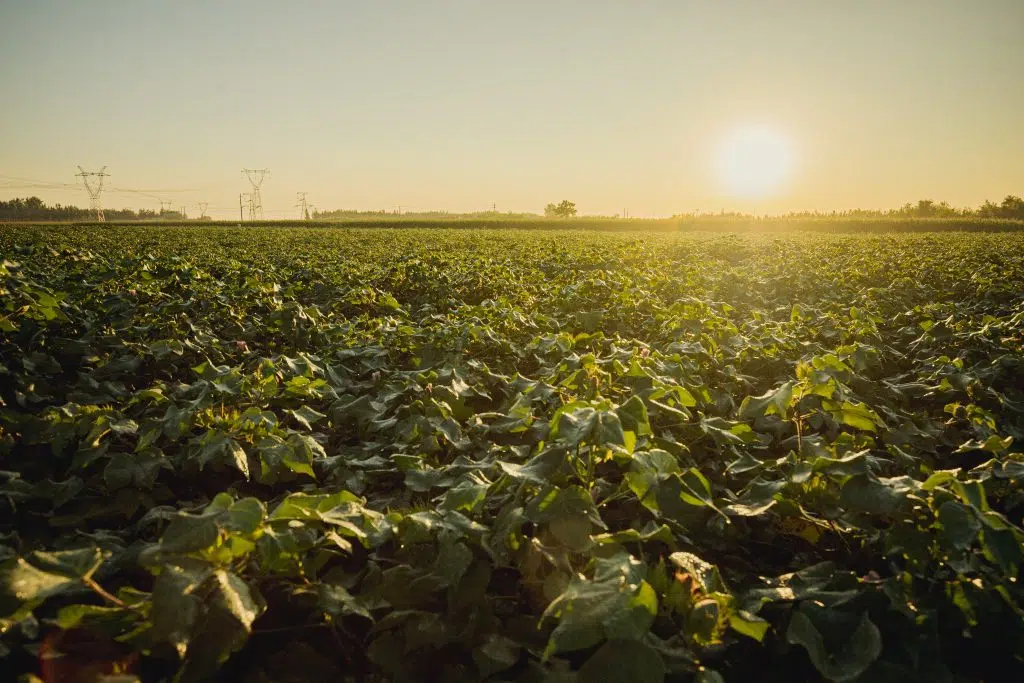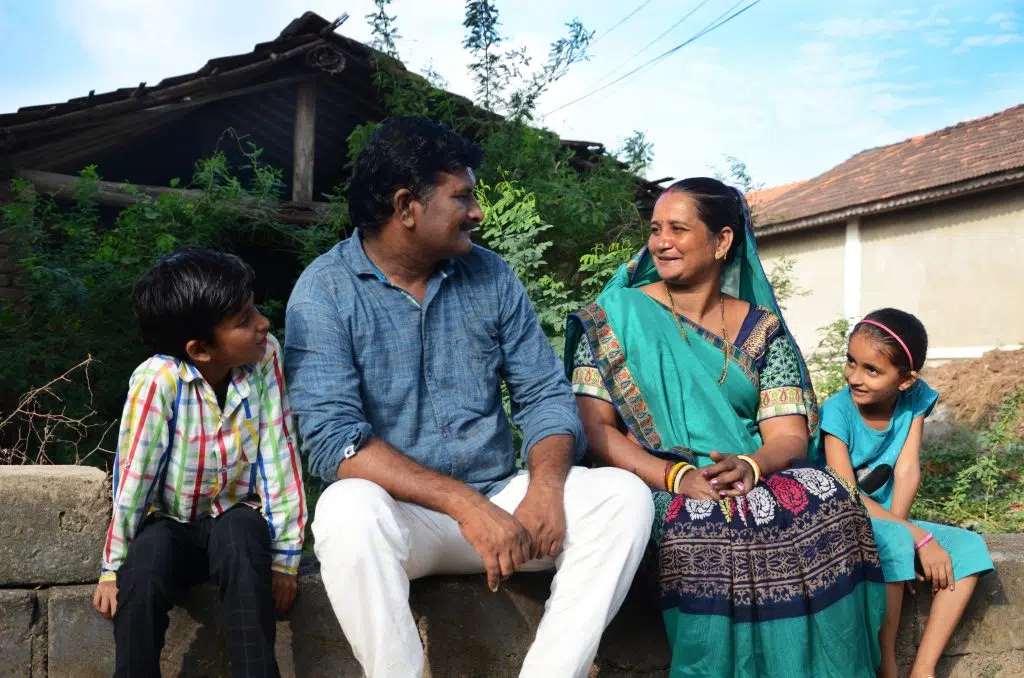By Lena Staafgard, COO, Better Cotton, in collaboration with Charlene Collison, Associate Director – Sustainable Value Chains and Livelihoods, Forum for the Future
Preparing the cotton sector for climate risks
Cotton is one of the world’s most important natural fibres, accounting for 31% of raw materials used for textiles and supporting the livelihoods of around 350 million people. As global warming escalates, potentially reaching 1.5°C above pre-industrial levels by 2030, the climate disruption already facing the sector is set to increase, with profound impacts for yields, supply chains and farming communities. The most vulnerable – farmers and farm workers – are likely to be the hardest hit. To ensure a thriving future for cotton, it’s vital that we help prepare the sector to adapt to the crisis. Cotton is a renewable, fossil free fibre and with climate smart practices it can contribute positively to climate change mitigation.
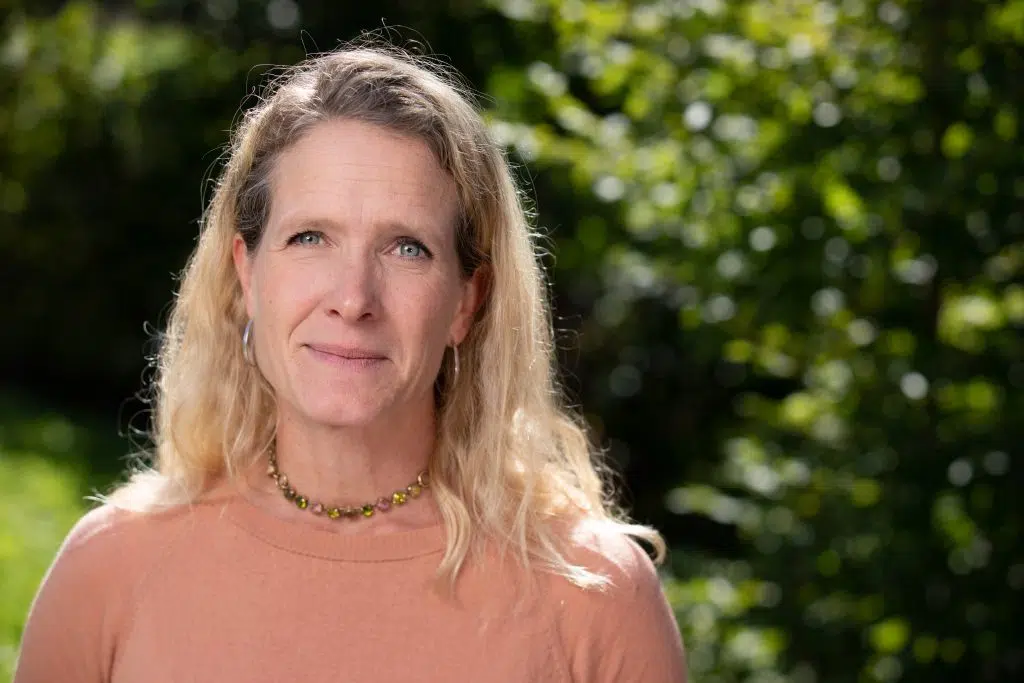
That’s why building the capacity of cotton farmers to halve the greenhouse gas emissions of Better Cotton and improve their climate resilience is a major focus for Better Cotton, and a core part of our 2030 Strategy. But we’ll only achieve our aims if we first understand the precise nature and severity of climate risks for cotton. So we welcome the first piece of research exploring the risks facing the global cotton sector, ‘Planning for Climate Adaptation’. Commissioned by Cotton 2040, convened by our partner Forum for the Future and conducted by climate risk specialist Acclimatise, it covers the whole value chain, exploring the diverse, complex and interrelated risks that stand to create serious challenges to cotton production.
Planning for Climate Adaptation: A call for action
By 2040, it’s estimated that all cotton producing regions will be affected by climate change, including the cotton growing giants of India, USA, China, Brazil, Pakistan and Turkey. Half of all regions could face high or very high climate risk exposure from at least one climate risk, with some set to experience up to seven risks, from temperature changes to irregular rainfall to droughts, flooding and wildfires. For example, heat stress (temperatures above 40°C) could present an increased risk across 75% of cotton growing regions, further straining and altering growing seasons.
Irregular, insufficient or extreme rainfall will be more prevalent in the world’s most productive cotton growing regions, preventing the development of healthy crops, obliging farmers to re-sow or even wiping out entire harvests. The increased risk of drought could impact around half of the world’s cotton, with farmers forced to increase their use of irrigation, where this possibility exists. Some 20% of cotton growing regions could be exposed to more river flooding by 2040 and 30% could be exposed to increased risk from landslides. All cotton growing regions will be exposed to increased risk from wildfires, and 60% of cotton could be exposed to increased risk from damaging wind speeds. This new reality would affect every aspect of value chains, from farm workers to brand owners, reducing yields, creating more uncertainty around cotton prices, and affecting supply chain continuity.
Those regions most likely to be exposed to climate impacts are also the least developed countries, meaning the impacts will be disproportionately felt by the most vulnerable, with farmers and producers particularly exposed. Brands and the wider cotton sector must therefore decarbonise their operations and supply chains globally as rapidly as possible – and in a way that ensures decent work and protects human rights.
A platform for collective, systemic change
We’re too late in the day to avoid all above impacts, but we can certainly reduce the risks, and strengthen farming communities’ ability to manage through them. For that, collaboration is needed across the sector to build climate resilience, reduce the climate impacts of cotton, and develop solutions for adaptation. As a multi-stakeholder initiative working with actors across the cotton sector, Better Cotton has a unique opportunity to act as a platform for collective action, collaborating closely with our partners and providing funding to build farmers’ capacity around the world. We are also leveraging partnerships to advocate for change, with a key focus on ensuring a fair transition to climate resilience in cotton producing countries, whereby all groups, including vulnerable farming communities, benefit from adopting sustainable practices.
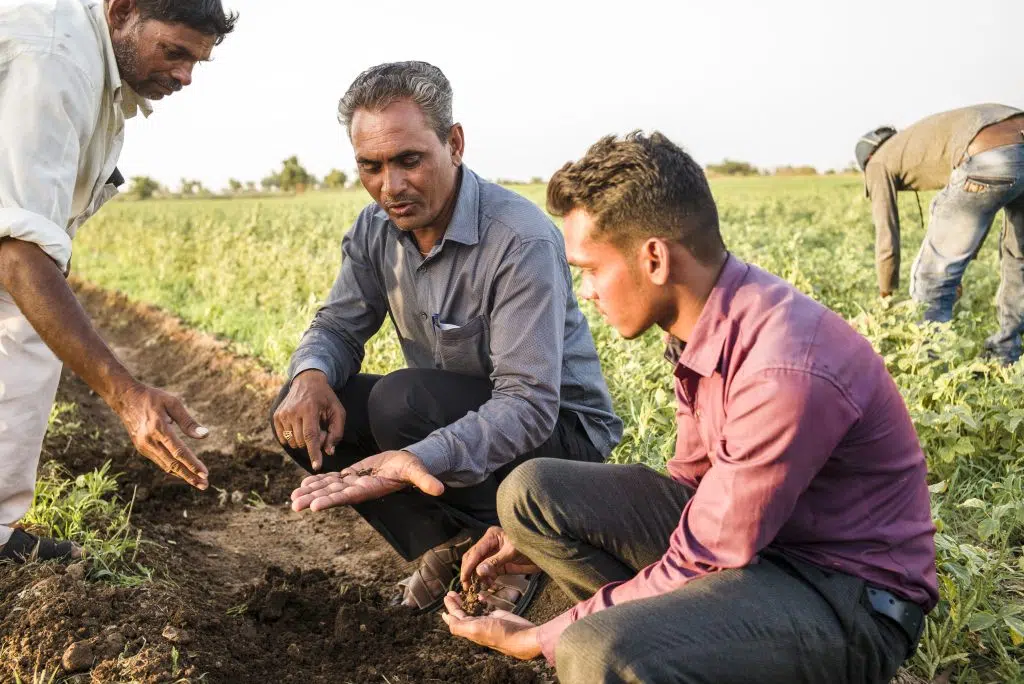

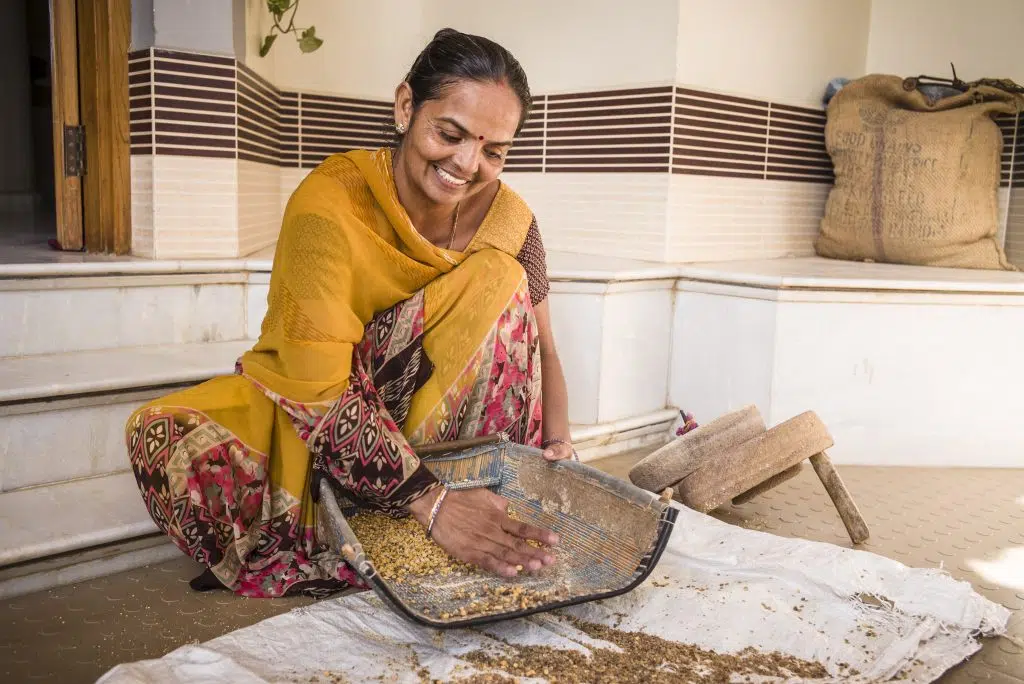

We are partnering with organisations that can provide further assistance to farmers by identifying, promoting, and scaling accessible regenerative and climate smart agriculture practices, and helping farmers to diversify their activities. This can include encouraging water storage, developing weather, pest and disease forecasting, creating and implementing weather-indexed insurance, and breeding cotton seed varieties that are resistant to drought, flood, pests, weed and disease.
There is a long journey ahead and the sector will need to move cohesively and decisively to thrive in the future. When we succeed, cotton will continue to be able to support millions of livelihoods across the world and be a carbon positive raw material for textiles and other products. Determined to make a difference, Better Cotton and Forum for the Future will work together with other like-minded partners to raise standards and encourage business models that help farmers build climate resilience and improve their livelihoods.
For more information, including on Forum for the Future and WTW’s ‘Insights to Action’ masterclasses on climate risks to the cotton sector, please see Planning for Climate Adaptation.








































